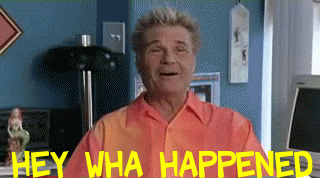Right that was CRA. And, no, it didn't start with Clinton.
Some reading if you're interested:
https://www.frbsf.org/community-development/files/cra_past_successes_future_opportunities1.pdf
FWIW, virtually no applications were denied. Literally only dozens of 100,000+ were denied. And it's because getting a passing CRA grade wasn't that difficult - as I said a nuisance mostly - and even those banks with bad records almost never had their applications denied.
The CRA obligated banks buying up other banks or wanting to open up new branches to make loans in formerly redlined areas. The idea was if you had a branch in a poor area, you couldn't strip the capital out to make loans to multinationals in NYC. What the law did NOT do was force them to make bad loans, which is what the default data show.
I just don't have any patience for arguments that start and end with CLINTON!!! and pretend the Bush II years didn't happen. Were Bush, his hand picked regulators and the GOP too damn stupid or lazy to change those rules, the same way CLINTON!!! did? If not, why do you pretend that whatever Clinton did was carved in granite? The bubble blew up on Bush II's watch, and it's amazing how Bush had nothing to do with anything, and it was all Clinton's fault... :roll:
From the link above:
Bottom line is the subprime
LOAN market didn't cause any crisis. What did was the "secondary and tertiary financial products" which I've best seen described as highly leveraged
bets on bets on bets on bets. The mortgage was just one of those bets, so you might have a $100k subprime loan that when it defaulted brought down $1 million or more in losses.
It's why when all this started, lots of
almost smart people who didn't understand this were saying, "Hey, worst case, 20-30% of this $2 trillion in subprime (that was the total of all outstanding subprime loans in 2008) goes poof, and that's really bad, but the system can EASILY handle that!" And they were right, but not when you take that loss and multiply it by 10 or 20 or 40 which was what was actually riding on those mortgages because of hundreds of $TRILLIONS in derivatives, all of them completely unregulated.
Total CDS was about $60 trillion at the peak - with a T - or 30 times the entire subprime LOAN market. And that was just one type of those 'bets on bets.'



